|
Usually at this point during Lent I am looking forward to the Feast of St. Joseph as a brief respite from my Lenten sacrifices. However, this year his Feast Day is on Palm Sunday weekend. With this early timing, it is easy for us to forget about his Feast Day. While more than a week away, I wanted to take some time to reflect on Joseph and remind ourselves of the example he serves for us each and every day. Today’s Gospel (Jn 5:1-16) describes one of Jesus’ miracles in which he commands a man to “Rise, take up your mat, and walk.” Without question the man stands up, picks up his mat, and walks away telling others of the good news. This man had no reason to trust Jesus or even think that he could ever walk again, but he believed and he obeyed. This reminds me of St. Joseph who, without question, listened to God’s call. Without question, Joseph stood by Mary and Jesus as husband, father, and protector. God asks nothing less of us in our own lives and Lent is a perfect time to reflect on whether we are listening to God’s call to “believe and obey.” We can start by going to confession. An examination of conscience can help us to see where we are not believing and obeying, while confession also gives us that clean slate that we so desperately need in order to hear God’s voice in our lives. Once we have prepared ourselves to receive God’s word, we are able to more fully align our hearts to Christ and follow in his footsteps. But this is not an easy thing to do. We will go to confession many times over the course of our lives so that we can once again learn to “believe and obey.” But this is not something that we have to do alone. Not only do we have Christ and the entire Catholic Church on our side, we also have the saints. In particular, St. Joseph is a beautiful example of living a life of faith and obedience to the will of God, as evidenced by his willingness to follow God’s plan even when he didn’t know the outcome. If we learn to live our lives as he did, then I guarantee we will continue to move closer to Christ. As I mentioned before, the Feast of St. Joseph is two weekends from now. I encourage you to look to him for guidance and strength during your Lenten journey. His silent faith, his dedication to the Holy Family, and his role in forming and raising the Son of God gives us a wonderful example by which to form ourselves to Christ and to believe and obey without question. As we approach his Feast Day, I also invite you to join me in praying a novena to St. Joseph that we may learn to silence our hearts and listen to the Word of God during this Lenten season. This nine-day series of prayers helps us to focus our minds and hearts on specific intentions and invites St. Joseph in a special way to intercede for us. Click here to join me in praying the novena to St. Joseph. “Let us allow ourselves to be filled with St. Joseph’s silence!” -Pope Emeritus Benedict, Angelus, December 2005 Nicholas Shields is a Young Professional in Washington, D.C
0 Comments
A few years ago, I was backpacking through the desert of northeastern New Mexico. On one particular day, we were going to climb the tallest mountain of our trek, Baldy Mountain, at an elevation of 12,441 feet. As we got higher, the climb became more difficult with thinning air and more challenging terrain. As we neared the summit, I ended up in front of the crew. Just as we reached the summit, our crew leader, Jordan, literally gave me the final push to the top. At that moment, we were on top of the world and gleaming with joy! While on the mountaintop, we could see for miles. As we reveled, I paused and said a quick prayer of thanksgiving. One couldn't help but be amazed at God's great creation. As we rested, having a quick snack and some water, we saw some storm clouds starting to roll in and were forced to descend quicker than anticipated. Eventually, we would finish our 110 mile trek—with Baldy Mountain being one of the greatest highlights.
Whenever I hear the story of the Transfiguration, my mind immediately goes to this time in the mountains. Because of this experience, I feel as though I have walked with Peter, John, and James. At the moment I reached summit, I caught a glimpse of the glory of God. I saw a small part of the transfiguring power of Jesus. I went from a hiker to a pilgrim in a matter of seconds. My trek now had a greater significance. It was no longer just a physical challenge, but one that would cause me to go on a religious quest in God's great creation. This is what I see in last Sunday's Gospel, which is a reminder of the splendor of Jesus. Usually by this point in Lent, I am more concerned about avoiding the things I have given up and less on Jesus. The Transfiguration is a reminder of why we enter the Lenten season: to see the face of Jesus. He helps us transfigure ourselves into being more loving, more merciful, and more perfect humans. If we look at the beginning of Chapter 9 of Luke, Jesus gives his mission to the Apostles. He tells them to go out and proclaim the Good News. It is after the Transfiguration that he reveals more of his glory. We, too, have the same experience. These experiences come in a number of different ways. They are often brief personal moments that can happen anywhere. Personally, I often find them in interactions with individuals. It can be serving the poor, being with a friend during a difficult time, or smiling at a stranger in the grocery store. From the moment of our baptism, we are sent out into the world as apostles and then along the way we consistently experience his glory. This encounter can happen anywhere and at anytime. I also appreciate Peter's role in this Gospel. Rather than being amazed at the splendor of Christ and the conversation between him, Elijah, and Moses, Peter suggests they pitch tents for the three. Doing so would completely defeat the purpose of the meeting. His transfiguration is an affirmation of his identity as the Messiah and is meant to show how Jesus is the fulfillment of the Old Testament. I often find that I say something at the wrong place or time. That is exactly what Peter does here. He means well, but doesn't see what is in front of him: the glory that Jesus has revealed. In his humanity, Peter often does this, yet Jesus still loves him. Especially during the Year of Mercy, we need to be reminded that we, too, can be like Peter and that is okay. We often don't see the splendor in front of our eyes. But we know that we are loved by God, who is the Infinite Love. When we invite God to enter our hearts, we can see the spender of God. Like the patron of the Catholic Apostolate Center, St. Vincent Pallotti, said "Seek God and you find God. Seek God in all things and you will find God in all things. Seek God in always and you will always find God." As we go on this week, we should be looking in our own lives to see the transfiguring power of Christ. It may not be a major event, like last Sunday's Gospel, but in the small things. If we keep our hearts open this Lent we will find God anywhere. For more resources to accompany you on your Lenten journey, click here. I have always had a special admiration for St. Jude. Growing up, my home parish was the Church of St. Jude. I can still remember my mom telling me to pray to the saint whenever I felt that I was facing an impossible task. Legend says that since his name was so close to that of Judas, many people did not pray to him, for fear of confusing the two. To show his thanks to people who did remember him, St. Jude was willing to be extra fervent in bringing the faithful’s requests to the Lord. In John’s Gospel, towards the end of the Last Supper, Christ observes that soon he will no longer be with his disciples, but that he will soon reveal himself. Jude asks Jesus, “Master, [then] what happened that you will reveal yourself to us and not to the world?” (John 14:22) Our Lord responded, “Whoever loves me will keep my word, and my Father will love him, and we will come to him and make our dwelling with him” (John 14:23). He is telling his disciple, and us, that whoever holds God’s teachings in his or her heart and acts accordingly is filled with the Spirit of the Lord. The Feast of Sts. Simon and Jude remind us all to be God’s dwelling place. While we do not know much about the lives of either saint, tradition tells us that Simon was called the Zealot in the gospels and Acts (Lk 6:15; Acts 1:13). There is some debate to whether this means he was an ardent disciple of Jesus or that he was a former member of the Zealot sect that advocated for the violent overthrow of the Roman occupation. If the latter is to be believed, then Simon truly demonstrates that no one is beyond becoming a dwelling place of the Lord. The Zealots were known to use violence to advocate noncompliance with the Roman authorities. Nevertheless, tradition and legend hold that Simon helped to spread the Good News, peacefully, through much of the Middle East. It was that conversion of heart that truly made Simon a dwelling place of the Lord. Legend tells us that both saints suffered martyrdom while spreading the faith in Syria. Tradition holds that Simon was either crucified or sawed in half while Jude was clubbed to death or beheaded by an axe. Yet, in the face of adversity and hostility, they continued to profess the faith that had been revealed to them until the very end. So, the question remains: How do we become God’s dwelling place? The answer is simple – follow what Jesus told St. Jude at the Last Supper: love the Lord and keep His Word. When we accept and follow the Word of God, He truly and fully enters into our lives. By keeping His word on our minds and in our hearts, we make ourselves His dwelling place. Sts. Simon and Jude truly became dwelling places of God. What happens when God resides with someone? He or she becomes so full of God’s love that it must be spread. That is what happened to Sts. Simon and Jude and that is what is possible for all of us. By following their example, we, too, can be an outpouring of God’s love to others and help build up His kingdom. Victor David is a collaborator with the Catholic Apostolate Center and a staff member at The Catholic University of America in Washington, DC. -- The St. Jude Shrine is located in the heart of Baltimore, Maryland, and has been operated and staffed by the Pallottine Fathers and Brothers for over 80 years. The Archbishop of Baltimore entrusted the Shrine to the Pallottines in 1917. Regular Novena Services were established around the outset of World War II, when devotion to St. Jude reached remarkable proportions. Today, St. Jude Shrine is the Nationwide Center of St. Jude Devotions. Like the St. Jude Shrine on Facebook.
The St. Jude Shrine is a ministry of the Society of the Catholic Apostolate - Immaculate Conception Province. Learn more by visiting http://www.sacapostles.org/our-ministries.html. “Man, I can’t believe I saw the pope today! THE. POPE.” Everywhere I turn, I’m encountering men and women, young and old, believers and nonbelievers who are still in shock, electrified from the day’s events. And what a day it’s been! Months after the initial announcement, after countless preparations, programs, and prayers, Pope Francis was welcomed to the Basilica of the National Shrine of the Immaculate Conception overlooking the campus of The Catholic University of America. During his homily, Pope Francis called the church to rejoice, to proclaim the Good News to all and to step out of complacency and apathy. "Something deep within us invites us to rejoice and tells us not to settle for placebos which simply keep us comfortable," he said. It’s an experience people following the papal visit won’t soon forget, especially with all the coverage by global news outlets and social media alike. And yet, what will these people take away from the message of the Holy Father? Are they overjoyed to have been in his presence? Will they use the experience as a springboard to launch a new evangelization? Are they simply thrilled to post pope photos on social media in pursuit of as many “likes” and affirmations as possible? Are they annoyed because of the inconveniences brought about from having such a high level of security screen a crowd of tens of thousands of onlookers? What will the world remember from such an event? “Peace be with you,” the Pope had greeted the crowds, an invitation to set aside any and all of the worries, the disappointments, the troubles, and the restlessness burdening each and every one of those attending the Mass. This may not be one of the famous one-liners of Pope Francis the media picked up on as they ran commentary, but those words have been recorded in Sacred Scripture thousands of years ago and continue to be repeated countlessly each and every day around the world. How necessary is it for us to recognize this great greeting of blessing and to appreciate the call for us to focus on God and His infinite love for us! While the headlines will tell of Pope Francis’incredible addresses to the United Nations and a joint session of Congress for sure, the Holy Father isn’t as overly impressed by these displays of power. The only power he is awed by is that which radiates from the Cross and which resides perpetually in every tabernacle, which contains our Lord Jesus Christ present in the Most Holy Eucharist. The most incredible action then occurs at every Mass celebrated around the world-- and Pope Francis isn’t the first or only person to perform such a deed! To those who find the Mass to be boring or unnecessary in their spiritual lives, Pope Francis reminds them that: “The Eucharist is not a private prayer or a beautiful spiritual exercise, it is not a simple commemoration of what Jesus did at the Last Supper…[T]he Eucharist is Jesus himself who gives himself entirely to us. Nourishing ourselves of Him and abiding in Him through Eucharistic Communion, if we do so with faith,transforms our life, transforms it into a gift to God and to our brothers and sisters. Nourishing ourselves of that ‘Bread of Life’means entering into harmony with the heart of Christ, assimilating his choices, his thoughts, his behaviour. It means entering into a dynamism of love and becoming people of peace, people of forgiveness, of reconciliation, of sharing in solidarity. The very things that Jesus did.” The Eucharist is meant for every person, every nation, and the entire world! Similarly, Jesus is as truly and substantially present on the altar of St. Peter’s Basilica in Rome as on the east portico of the National Shrine here in DC or on the altar in my high school’s chapel in Lincroft, New Jersey. The mission of the Vicar of Christ, then, is to increase our faith and to bear witness to the love of our Lord and Savior. The Apostolic Visit to our nation is surely a tremendous and needed blessing: the faithful are united in the joy of the visit and are called to share this joy in their everyday lives and encounters with others. The Love realized in the Real Presence is the same which inspires and moves each of us to bring all, no matter their circumstances, to embrace and take part in this Love within the Universal Church.
“How beautiful are the footsteps of those who bring Good News” (Romans 10:15-17)! With these words of Isaiah quoted by Saint Paul, Pope Emeritus Benedict XVI warmly greeted the cardinals, bishops, and educators assembled at The Catholic University of America during his April 2008 apostolic visit to the United States. Seven years later, Pope Francis will be following in the footsteps of his predecessors as he brings the Good News to our nation. He is the fourth pontiff to do so. While the good news of Christianity itself hasn’t changed in two thousand years, its Argentine messenger is certainly electrifying the faithful with his personality of joyous humility, simplicity, and compassion evident in the course of his evangelization--specifically renewed calls to holiness and having an unreserved love of neighbor. And yet, it is all too easy to become lost in the so-called “Francis effect” (and attempts to get a papal selfie) and forget to pay attention to the message of His Holiness. A visit by the Vicar of Christ is certainly a rare occasion to be celebrated, but when it comes down to it, are we honoring the man visiting us or the One who authored the Good News in the first place?
I remember first reading the interview published by America magazine conducted by Fr. Antonio Spadaro, S.J. with the newly elected Pope Francis, desiring to hear from the man himself instead of the wild speculations and analysis drawn up by the media. To answer the first question of “Who is Jorge Mario Bergoglio?” the pope candidly responded, “I am a sinner. This is the most accurate definition. It is not a figure of speech, a literary genre. I am a sinner.” I was deeply touched to be able to identify with the earthly head of the Church in this way, thinking, “The Holy Father is a sinner… like me?!” But remaining a sinner is not what we are called to be as Christians. Accepting his election as pontiff, Pope Francis replied, “I am a sinner, but I trust in the infinite mercy and patience of our Lord Jesus Christ, and I accept in a spirit of penance.” These words are truly fitting for the “Servant of the servants of God”: a humble acceptance of God’s will and the call to give witness to His love by carrying one’s cross and serving others in imitation of Christ. We frequently see the Holy Father’s simple and charitable acts of love in global headlines. In a world so unfamiliar with loving one’s neighbor, it’s really no wonder why people find this shocking and out of the ordinary. But each of us, no matter our status, is called to give the same loving witness in our daily lives— love is our mission, after all! Remember that these acts, no matter how small, are an especially meaningful aspect of our Faith: Because Christ is the source of all our good works and is himself the truth of our faith, there is an indissoluble union between truth and love. It is the truth of our faith that guards our charitable works from becoming empty philanthropic endeavors. Our faith makes our charitable works building blocks of the Kingdom of God here on earth, blocks that can be used to build the Church on the cross of Jesus Christ. Our charitable work, on the other hand makes our faith visible and a real part of the world in which we live. The living truth of faith makes our works really good, and our good works reveal a true and living faith. (To see the full text, click here.) His Holiness is certainly aware that the eyes of the world are fixated upon his every deed. Instead of accepting the praise and lauds, he quietly continues to make each an opportunity for evangelization in the hopes of inspiring others to begin to tend to their neighbors. When Pope Francis arrives in the United States next month, remember to take the time to pray for him as he spreads the Good News, that God may grant him the strength, courage, and wisdom needed to touch hearts and that our Lady may grace him with her continued protection. Especially take the time to worship and adore the Author of Love who perpetually resides in the tabernacle of your local church— drawing near to Him requires no special security clearance, rank, or ticket, simply an open heart and a willingness to listen. Finally, pray that once Shepherd One (the name for the Air Italia plane the pope flies in) has departed for Rome, the seeds planted by His Holiness will grow to inspire us to continue the mission of love which has been entrusted to each of us. For more information on Pope Francis' Apostolic Journey to the U.S., please click here. “Deeds done well.” Note the emphasis that St. Vincent Pallotti places on how things are done. Too often there are many deeds that are not done well. They are done in a half-hearted, almost mechanical way. This is a “maintenance” mentality, as noted by the 2012 Synod on the New Evangelization. A missionary mode of operating, as emphasized by the Synod and by Pope Francis in Evangelii Gaudium, was at the core of the actions of St. Vincent Pallotti. Today is Pallotti’s feast day. As founder of the Union of Catholic Apostolate, an association of lay people, consecrated persons, and clergy, a part of which is the Society of the Catholic Apostolate (Pallottine Fathers and Brothers), he understood the need for all Christians to be people of action, apostles of Christ.
Today in Washington, D.C., thousands and thousands of people are taking to the streets in a show of action for life. One of the things that characterizes this effort is the joy that those who participate show in witness to life. Sometimes people of action, including Catholics, do not show joy in their actions. Joyful action will draw others, invite others, unite them, and send them forth to collaborate for the good of the Church and for the world. As we celebrate today the feast of the Patron of the Catholic Apostolate Center, St. Vincent Pallotti, I invite you to reflect on the the words of St. John Paul II and to do many deeds to make them a reality: “Continue to multiply your efforts so that what was prophetically announced by Vincent Pallotti, and the Second Vatican Council authoritatively confirmed, may become a happy reality, that all Christians are authentic apostles of Christ in the Church and in the world” (Homily of June 22, 1986). St. Vincent Pallotti, pray for us! May the Charity of Christ urge us on! Fr. Frank Donio S.A.C. is the Director of the Catholic Apostolate Center “He said to them: ‘… you will receive power when the Holy Spirit comes on you; and you will be my witnesses in Jerusalem, and in all Judea and Samaria, and to the ends of the earth.’ After he said this, he was taken up before their very eyes, and a cloud hid him from their sight. They were looking intently up into the sky as he was going, when suddenly two men dressed in white stood beside them. ‘Men of Galilee,’ they said, ‘why do you stand here looking into the sky? This same Jesus, who has been taken from you into heaven, will come back in the same way you have seen him go into heaven’” (Acts 1:7-11). Forty days ago, we celebrated the miraculous Resurrection of Jesus from the dead and joyful the start of the Easter season. Finally, after millennia of prophecies and expectation, the promise that humanity would be redeemed and restored in its relationship with God was fulfilled. Now Christ had risen in glory and conquered death by His Passion, allowing humanity to once again be united with its loving Creator (c.f. 2 Peter 1:4). This reunification of the disciples and their beloved Teacher was indeed a cause for celebration! What intense feelings of love and wonder must have resounded in the apostles’ hearts after their Master, Teacher, and Savior had been cruelly put to death only a few days ago. They believed that Jesus’ return meant that He would now “restore the kingdom to Israel” to finish His earthly ministry (Acts 1:6). “Not so, not yet,” Jesus corrects them (c.f. CCC 672). Instead, it was now time for Him to join the Father in Heaven since He had accomplished the Mission of atonement that He had been sent to earth for on the Cross (c.f. John 19:30). With that, Jesus was taken up before His followers into Glory. While they were still watching, whether out of wonder, awe, confusion, or fear as what to do next (perceptibly without Jesus), two heavenly messengers appear and urge the disciples not to stand there, looking up. Jesus would come again, they promised. Meanwhile, there was a mission to undertake; they were to go and wait for the Spirit, Who would help them take the next steps towards completing Jesus’ final instructions, which were, as St. Pope John Paul II put it, “the faithful expression of the Father’s will.” Before He was taken up, Jesus said to the disciples, “All authority in heaven and on earth has been given to me. Therefore go and make disciples of all nations, baptizing them in the name of the Father and of the Son and of the Holy Spirit, and teaching them to obey everything I have commanded you” (Matthew 28:18-20). Christ was planning something bigger than establishing a temporal kingdom on earth, as the Jews commonly thought their awaited Messiah would bring. The Apostles, moreover, were instructed to teach— to proclaim the Good News to the whole world. And they were to baptize in the name of the Father, and of the Son, and of the Holy Spirit. Like Jesus, they were to speak explicitly about the Kingdom of God and about salvation. The Apostles were to give witness to Christ to the ends of the earth. The early Church clearly understood these instructions and the missionary era began. And everybody knew that this missionary era could never end until the same Jesus, who went up to heaven, would come back again. (St. John Paul II, “Homily on the Solemnity of the Ascension of Our Lord,” May 24, 1979) We, too, in a sense, can stand with the apostles, looking heavenward to that place where our Lord ascended. We, too, can experience that intense wonder deep within each of us which transforms fear and tragedy, insecurity and tension into a peaceful certainty that floods the heart with loving warmth from God. From this, the same question posed to the disciples nearly two thousand years ago is asked of each of us even today: why do you stand looking up? The Church’s mission has always been that of the Great Commission, to spread the glorious, joyful, and redemptive news of Christ’s rising from the dead (c.f. John 3:16). As Saint Augustine testified, we are the Church and are commanded to accept this mission and not stand idly by in either amazement or apathy! Certainly, Holy Mother Church’s evangelization has endured obstacles, dogmatic disputes, and other setbacks over the centuries in bringing the Good News to the ends of the earth. No matter the challenge, the Church always pulls through since she has been founded by Christ Himself with the promise that “the gates of the netherworld shall not prevail against it” (Matthew 16:18). As the disciples and the Blessed Mother would experience on Pentecost Sunday, it is the Holy Spirit, the gift of the Father, Who is the source of the Church’s strength. It is He Who guides the Church in the way of Truth in the spreading of the Gospel, doing so through the power of God and not by means of the imperfect wisdom or strength of man. After having undergone the humiliation of His passion and death, Jesus took His place at the right-hand of God; He took His place with His eternal Father. But He also entered heaven as our Head whereupon, in the expression of Leo the Great, the glory of the Head became the hope of the body… our nature is with God in Christ. And as man, the Lord Jesus lives forever to intercede for us with Father. At the same time, from His throne of glory, Jesus sends out to the whole Church a message of hope and a call to holiness. Because of Christ’s merits, because of His intercession with the Father, we are able to attain justice and holiness of life, in him… The power of the glorified Christ, the beloved Son of the eternal Father, is superabundant, to sustain each of us and all of us in the fidelity of our dedication to God’s Kingdom. The efficacy of Christ’s Ascension touches all us in the concrete reality of our daily lives. Because of this mystery it is the vocation of the whole Church to wait in joyful hope for the coming of our Savior, Jesus Christ. (St. John Paul II, “Homily on the Solemnity of the Ascension of Our Lord,” May 24, 1979) As part of the “New Evangelization,” we are reminded of this command to reveal the Truth of our resurrected Lord through our words and actions in accordance with how we are called to live as Christians, that is, with love (c.f. John 13:34-35). Like the evangelizers before us, we can expect face challenges when spreading the Gospel message, namely persecution (c.f. John 15:18, Romans 8:35-39, 2 Timothy 3:12, 1 Peter 4:16-19). Ah, but what a price to pay for the glory of God! Remember, too, that Christ promised that He would always be with us in our ministry (c.f. Matthew 28:20, Galatians 2:19-20)! As Pope Francis noted during his fourth general audience, Jesus is no longer “in a definite place in the world as He was before the Ascension… He is now in the lordship of God, present in all space and time, next to each of us.” We can always turn to Him in prayer; He, in turn, will sustain us with strength, grace, and Love. Given the difficulty of our task (often requiring great sacrifice on our part), this is indeed a great comfort! In addition, it is Christ as both God and man Who brings our humanity before God to intercede for us. Finally, the Ascension of the Lord is also our Feast because we have ascended with the Lord! The Feast presents an opportunity to reflect upon the relationship between our profession of faith and our daily life. It is the start of the evangelization of the world by Christ’s disciples and the call for us to do that same Work, started nearly two millennia ago, in joyful witness to the Redeemer of the world. The Solemnity of the Lord’s Ascension must also fill us with serenity and enthusiasm, just as it did the Apostles who set out again from the Mount of Olives “with great joy” (Luke 24:52). Like them, we too, accepting the invitation of the “two men in dazzling apparel”, must not stay gazing up at the sky, but, under the guidance of the Holy Spirit must go everywhere and proclaim the saving message of Christ’s death and Resurrection. His very words, with which the Gospel according to St Matthew ends, accompany and comfort us: “and lo, I am with you always, to the close of the age” (Matthew 28:20). (Pope Emeritus Benedict XVI, “Homily of His Holiness During the Pastoral Visit to Cassino and Monte Cassino,” May 24, 2009) Thomas Wong is an undergraduate at The Catholic University of America, currently studying abroad in Rome, Italy. Alleluia! Doesn’t it feel great to be able to exclaim that again? After forty days of restraining ourselves from singing it either as part of a hymn or before the Gospel reading was proclaimed, we are finally permitted to once again raise our voices in this superlative expression of thanksgiving, joy, and triumph. In his book, Crossing the Threshold of Hope, Soon-to-be Saint John Paul II boldly announced, "We are the Easter people and ‘Hallelujah’ is our song,” and as such, how can we keep from singing?
On Sunday we celebrated the Solemnity of Easter, the most important liturgical celebration of the year. So grand, so significant is Easter that each Sunday of the year is a reflection of this feast to some degree. Each and every holy sacrifice of the Mass, though, is a memorial of the Lord’s Passion and Resurrection (cf. CCC 1330). It is important, then, to realize what sets apart the celebration of Easter from the rest of the year, apart from the colorful dresses and elaborate dinners that have become traditional for this time of year. On Good Friday, Jesus Christ, the Son of God sent to ransom the world for our sins, hung on the Cross and, after three hours of agony, “bowed His head and gave up His spirit” (Jn:19:30). Though Jesus had warned His followers of His necessary death, they were unable to understand what He was saying and were utterly shocked at what finally happened outside Jerusalem’s walls on that dark day. What a turn of events from when that very city had joyfully embraced Christ’s entrance only a few days earlier! Separated from their teacher and friend, and struggling to deal with the chaotic incomprehensibility of that Passover weekend, the disciples of the Lord locked themselves in the Upper Room of their Last Supper, fearful of what awaited them outside and in the future. Imagine their surprise, then, when Mary Magdalene burst into their presence and breathlessly announced that Jesus’ body had been taken from where it had been laid. Immediately, Peter and “the beloved disciple” ran to the tomb of Jesus, not prepared for what awaited them. What comes next would alter both their and our lives forever. Jesus was dead. There was no doubt about that. The news that Jesus was not in His tomb must have inspired those two disciples with a much needed measure of hope, if not curiosity and wonder, as they boldly ran through the streets to see the sight for themselves. Jesus’ Resurrection was unprecedented, that is, totally and radically new— no one had ever been raised from the dead like this before! Though they were not yet able to fully express, let alone comprehend, what had happened, the disciples would have had their hearts aflame with the news, a combination of joy, relief, praise, excitement, comfort, and hope that needed to be shared with the other followers of the Risen One. Upon their return to the Upper Room, Peter and the beloved disciple, along with Mary Magdalene and the other women with her, become the first evangelizers— proclaimers of the resurrected Christ to the world. Here we find the origins of the Resurrection language Christians used two millennia ago and continue to speak through today. As part of the New Evangelization, we too are called to share the Good News of Christ’s victory over death with everyone, friends and family, peers and enemies alike. It is impossible (if not selfish) to keep such wondrous news to ourselves— we need to share the joy and enthusiasm of the disciples as they gradually began to recognize the significance of the Resurrection, initially in the empty tomb and later through their encounters with the living Jesus. How, then, can we ever become complacent in our celebrations of Easter? In the weeks leading up to Christmas, we anticipate Christ’s first coming into the world with carols, treats, and gift-giving. Easter is so much more important! As the Catechism states: “If Christ has not been raised, then our preaching is in vain and your faith is in vain.” The Resurrection above all constitutes the confirmation of all Christ’s works and teachings. All truths, even those most inaccessible to human reason, find their justification if Christ by his Resurrection has given the definitive proof of his divine authority, which he had promised… The Paschal mystery has two aspects: by his death, Christ liberates us from sin; by his Resurrection, he opens for us the way to a new life. This new life is above all justification that reinstates us in God's grace, “so that as Christ was raised from the dead by the glory of the Father, we too might walk in newness of life.” (651, 654) It is often said that without Easter there would be no Christmas (Or Good Friday). This day celebrates the most important event in all of history, when our lives were changed forever. Now living in the promise of eternal life, we are called to obey Christ’s great Commission, to “go and make disciples of all nations” (Mt: 28:19) This isn’t confined to the octave of Easter (which is technically an eight-day celebration) or one liturgical season, but each and every moment of our lives, through our thoughts, words, and actions. The Resurrection of Jesus is not merely a moment in time, but the very definition of time itself. No matter how dark or painful our lives may seem, we can find comfort in the joys of Easter and carry the spark of that day each day of our lives, to be shared with all. Let us cry out in song that Christ has been raised from the dead: Alleluia! Thomas Wong is a student at The Catholic University of America and a member of the Catholic University Knights of Columbus. In 1979, Blessed Teresa of Calcutta, then Mother Teresa, was awarded the Nobel Peace Prize given to “the person who shall have done the most or the best work for fraternity between nations, for the abolition of reduction of standing armies and for the holding and promotion of peace congresses.” Below is a portion of her Nobel Lecture in which she speaks of the joy in her work of enkindling charity and the call we have to pass on this joy to others.  And so here I am talking with you - I want you to find the poor here, right in your own home first. And begin love there. Be that good news to your own people. And find out about your next-door-neighbor - do you know who they are? I had the most extraordinary experience with a Hindu family who had eight children. A gentleman came to our house and said: Mother Teresa, there is a family with eight children, they had not eaten for so long- do something. So I took some rice and I went there immediately. And I saw the children- their eyes shining with hunger - I don't know if you have ever seen hunger. But I have seen it very often. And she took the rice, she divided the rice, and she went out. When she came back I asked her - where did you go, what did you do? And she gave me a very simple answer: They are hungry also. What struck me most was that she knew- and who are they, a Muslim family - and she knew. I didn't bring more rice that evening because I wanted them to enjoy the joy of sharing. But there were those children, radiating joy, sharing the joy with their mother because she had the love to give. And you see this is where love begins- at home… …And I know well that you have not given from your abundance, but you have given until it has hurt you. Today the little children they have- I was so surprised - there is so much joy for the children that are hungry. That the children like themselves will need love and care and tenderness, like they get so much from their parents. So let us thank God that we have had this opportunity to come to know each other, and this knowledge of each other has brought us very close. And we will be able to help not only the children of India and Africa, but will be able to help the children of the whole world, because as you know our Sisters are all over the world. And with this prize that I have received as a prize of peace, I am going to try to make the home for many people that have no home. Because I believe that love begins at home, and if we can create a home for the poor- I think that more and more love will spread. And we will be able through this understanding love to bring peace, be good news to the poor. The poor in our own family first, in our country and in the world.  To be able to do this, our Sisters, our lives have to be woven with prayer. They have to be woven with Christ to be able to understand, to be able to share. Because today there is so much suffering - and I feel that the passion of Christ is being relived all over again - are we there to share that passion, to share that suffering of people. Around the world, not only in the poor countries, but I found the poverty of the West so much more difficult to remove. When I pick up a person from the street, hungry, I give him a plate of rice, a piece of bread, I have satisfied. I have removed that hunger. But a person that is shut out, that feels unwanted, unloved, terrified, the person that has been thrown out from society - that poverty is so hurtable and so much, and I find that very difficult. Our Sisters are working amongst that kind of people in the West. So you must pray for us that we may be able to be that good news, but we cannot do that without you, you have to do that here in your country. You must come to know the poor, maybe our people here have material things, everything, but I think that if we all look into our own homes, how difficult we find it sometimes to smile at each other, and that the smile is the beginning of love. And so let us always meet each other with a smile, for the smile is the beginning of love, and once we begin to love each other naturally we want to do something. So you pray for our Sisters and for me and for our Brothers, and for our Co-Workers that are around the world. That we may remain faithful to the gift of God, to love Him and serve Him in the poor together with you. What we have done we should not have been able to do if you did not share with your prayers, with your gifts, this continual giving. But I don't want you to give me from your abundance, I want that you give me until it hurts. The other day I received 15 dollars from a man who has been on his back for twenty years, and the only part that he can move is his right hand. And the only companion that he enjoys is smoking. And he said to me: I do not smoke for one week, and I send you this money. It must have been a terrible sacrifice for him, but see how beautiful, how he shared, and with that money I bought bread and I gave to those who are hungry with a joy on both sides, he was giving and the poor were receiving. This is something that you and I- it is a gift of God to us to be able to share our love with others. And let it be as it was for Jesus. Let us love one another as he loved us. Let us love Him with undivided love. And the joy of loving Him and each other- let us give now - that Christmas is coming so close. Let us keep that joy of loving Jesus in our hearts. And share that joy with all that we come in touch with. And that radiating joy is real, for we have no reason not to be happy because we have no Christ with us. Christ in our hearts, Christ in the poor that we meet, Christ in the smile that we give and the smile that we receive. Let us make that one point: That no child will be unwanted, and also that we meet each other always with a smile, especially when it is difficult to smile. “For when I preach the gospel, I cannot boast, since I am compelled to preach. Woe to me if I do not preach the gospel!”
–1 Corinthians 9:16 In a changing world, the Gospel does not change. The Good News always remains the same. Our vocation to be its bearers and our responsibility are always current. “The core of the proclamation always remains the same: the Kerygma of Christ who died and rose for the world’s salvation, the Kerygma of God's absolute and total love for every man and every woman” (Benedict XVI, Message for World Mission Day 2012). I ask myself, what do we, sons and daughters of St. Vincent Pallotti, need in this era of the New Evangelisation? Like everyone in the Church today, I need to re-examine, with courage and humility, my way of being an apostle, sent to evangelise, I need to understand the profound sense of insufficiency of my proclamation and my witness; otherwise, how can I explain the fact that so many people around me do not know God and live as if God did not exist? “God created human beings in time only in order to lead them happily to eternity. His desire is to see all of them saved, enlightened by his graces and by the exercise of his Providence. For this reason, St. Dionysiusthe Areopagite says that the most holy, most noble, most august, most divine work of all of the Divine, august, noble and holy works is to cooperate with the merciful plans, wishes and desires of God for the salvation of human beings” (OOCC IV, 124). At some point in the past, each one of us met Jesus, each one replied with love and courage, ‘Yes, send me’, to his invitation, ‘Follow me’. Each person lives out in their own state of life as mother, father, sister, brother, priest, young, sick etc., day after day, their being an apostle, sent by Jesus. All of us have the same desire, implanted in our hearts by our Creator, to be happy. As good Christians, we must desire the same happiness also for our brothers and sisters. We find the fullness of our happiness in Jesus Christ who is our Way, our Truth and our Life. Without the renewing breath of the Holy Spirit there can be no New Evangelisation. Without a deep desire for the Holy Spirit on my part, “the new man, the new woman”, true witness of God, cannot be born in me. I already realize from my life experience how risky and unpredictable it is to invoke the power of the Holy Spirit and his action within us But if we open our hearts and minds to the fire of the Holy Spirit who acted in the life and missionary activity of the first apostles, of St. Paul, of the saints of all times, including our holy Founder, we can experience unexpected change. Like the disciples of Emmaus, like the disciples who left the Cenacle after Pentecost transformed from simple chroniclers into passionate witnesses of the Risen One, from frightened apostles into courageous bearers of the Gospel to the very ends of the earth. It is the Holy Spirit who impels us to proclaim the great works of God. I really find the need to be changed into an ardent witness of the Risen Jesus from whom life springs for me and for the whole world. Not to be simply a chronicler of facts, of events immortalised in the pages of the Gospel, but to believe strongly in the extraordinary power, and feel the life, which the Gospel possesses. The most difficult thing today for each of us, for every Christian, I think, is to take seriously the Gospel which we have in our hands, to try to translate into practise what Jesus says to us about simplicity of spirit. But this is precisely what is being asked of us with great insistence in today. The Good News of the Gospel is always the love of God for each human person; we are expected to give concrete form to this message and it is only then that those close to us will be able to understand the message of love and hope. A “theology of the face”, meaning meeting and welcoming the other in a personalised way, seems more relevant and necessary. It is very much needed today in human relationships. The most effective way to share the Good News with others is to communicate it heart to heart. Every person wants to feel themselves to be worthy of our attention, our interest, our love, and many want to see in us people of God. This is a selection from an article titled, "The Year of Faith, The Synod of Bishops on the New Evangelisation, and the 50th Anniversary of the Canonisation of St. Vincent Pallotti" by Sr. M. Bozena Olszewska, S.A.C., who is a member of the General Council of the Pallottine Missionary Sisters "The apostolate of the laity derives from their Christian vocation and the Church can never be without it."
These words come from the opening lines of the “Decree on the Apostolate of the Laity” (Apostolicam Actuositatem), one of the nine decrees that come out of the Second Vatican Council. They are quite moving and powerful documents that were handed down to us by the council fathers. This particular document on the laity shows that the Church is dependent on the apostolate of all people. But the term “apostolate” seems so daunting; clearly the word is rooted in the idea of being an apostle. I tend to think back to the Twelve Apostles, which creates a certain amount of anxiety. How can I even think about living up to the great examples of these twelve? Yet they are our example, and our apostleship is essential to the life of the Church. In the Church we tend to use the word apostle quite a bit and in many different ways. It appears in terms such as: apostolic, apostolate, and apostleship. To find a secular answer, I looked up the word “apostle” in a Merriam-Webster dictionary. In using a dictionary, my hope was that I might come to a better understanding of what it means to be an apostle. The first definition that I came across for apostle was "one sent on a mission." This first meaning really helps expand the idea of the New Evangelization in simple terms. The discovery of this definition led me to formulate the following question: "What is our mission as baptized Catholics?" This is a very important question that has been the subject of major debate. A simple answer is that we are called to go out into the world around us and proclaim the Good News of our Lord, Jesus Christ. How this is accomplished is a decision that must be made by each one of us. We must find our own niche in the greater mission of Christ. We have been given a divine mission that we must go out and complete. An interesting dilemma of this universal apostolic call is that for some reason people tend to shy away from it. I think that people tend to think that they are not worthy of such a calling or that they are not holy enough. Nothing could be further from the truth. We have all been given the necessary gifts from God to be able to be an apostle. These gifts are not always automatically known to us. Because of this, it is essential that we go out into the world and discover what our God-given talents are. Once we have become aware of our gifts, the task at hand becomes more manageable and attainable. Personally, I have found that being an apostle in the world today can be quite difficult. Through my active search and prayer to recognize the gifts and talents God has given me, I have discovered that I am someone who is easy to talk to. In response to this realization, I make myself available for people, especially my close friends, and I make sure that I both listen and give general advice when necessary. Doing this, however, can be difficult because there are many instances when time is limited, and I need to make a decision about what to put on hold. This can be difficult, so I stop to think about the things on my agenda versus the needs of the person seeking my counsel. Taking this time to reflect makes the decision quite clear. I developed a series of questions that has helped me in this process. I’ve found it very beneficial to go over them every now and again, particularly during the Lenten season. The questions are: Do I understand what it means to be a true apostle of Christ? Do I have an understanding of my mission at this current time in my life? Am I making decisions that help in my mission? Do I understand the gifts that God has given me to fulfill my mission? Do I thank God for these gifts and abilities? My hope is that you find these questions as helpful as I have. Mary, Queen of the Apostles, pray for us! Pat Fricchione is the Research & Production Associate for the Catholic Apostolate Center. |
Details
Archives
July 2024
Categories
All
|
About |
Media |
© COPYRIGHT 2024 | ALL RIGHTS RESERVED

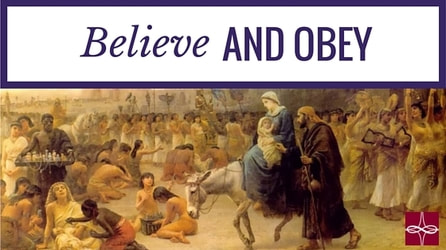


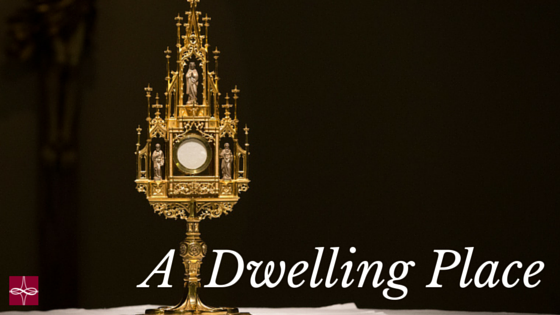
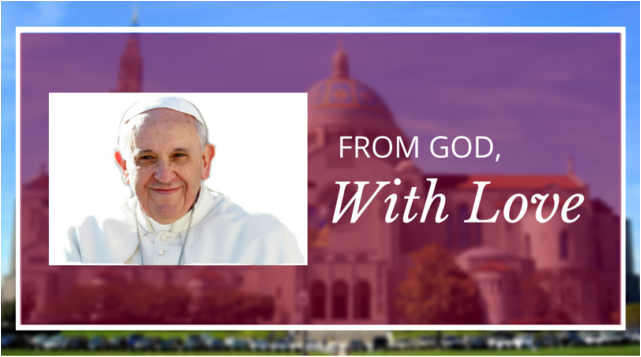

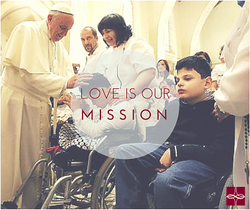

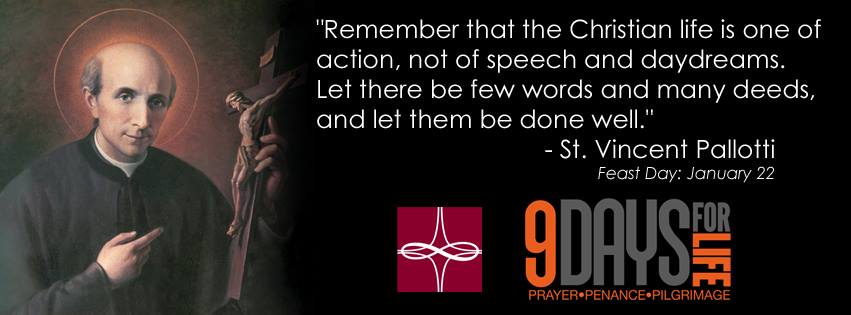
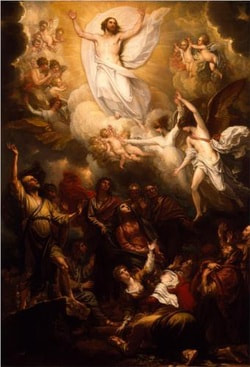

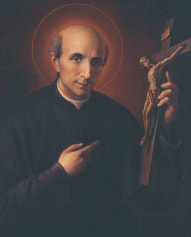

 RSS Feed
RSS Feed